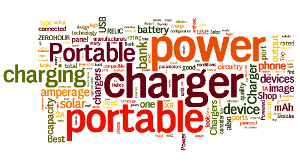Why should we use reusable bottles instead of prepackaged kind

There is hardly any doubt about the importance of a proper hydration to our health. We try to replenish water in our bodies any way we can, and if we don't have any access to a fresh
water source we bring our own. Unfortunately on many occasions the thirst quenching miracle comes in a not so nature friendly plastic water container. This might be the reason
why consumers are starting to look for "green" personal hydration alternatives.
In my personal experience I noticed that while about seven years ago, when I started to play Sunday morning soccer pickup games, nearly everybody that
came to our games had a few store-bought bottles of water. Fast forward to 2014 and the same group of people hardly ever brings anything else but a
reusable bottles filled with filtered tap water.
There are probably many reasons that, over the years, have changed our attitude towards bottled water. Some of us probably took notice of the fact that to
produce those disposable plastic bottles we need to process 32 - 54 million of barrels of crude oil every year and after a single use many of those bottles
will end up in a landfill (
Watch this 2010 Youtube video: Environmental Impact of Plastic Water Bottles
). Others might have realized that they pay for something that is readily available almost for free and it is no further than their fridge.
Yet, others maybe try to avoid a potential danger of chemicals from the container, polluting our drinking water. The debate on plastic related
chemicals continues and when we are reading results of various studies, we can see that they are finding chemicals like BPA, BPS and others,
leaching into the water content when a bottle is exposed to ultraviolet, heat or both, even from the BPA free plastics, we might be compelled to stay away
from plastics as much as possible as everyday use food containers. If we add on the fact that nearly half of the bottled water is no different than
the water we get from our tap and a water filter, choosing a reusable bottle over the store-bought, starts to make a lot of sense. No matter what are the
reasons, they created a lasting impact on our habits. As a society we started to look for our own "best reusable water bottle". Eliminating all plastics
that get in contact with our food might not be possible or realistic but replacing our water bottle with one that is safe, "green" and cost effective
seems easy enough and there are some great choices among bottles for both single walled and insulated versions.
*
BPA FREE
In general the following plastic groups are considered bpa free, they are:high density polyethylene, low density polyethylene and polypropylene,
recycling codes #2, #4, #5 respectively. All other plastics may not be bpa free.
 Because iPhone is so much more than just a phone, its “Talk Time” and “Stand By Time” no longer have any meaning. In many cases we only are interested in how much time we can get before we need to look for an outlet to recharge our battery. There is also another reason why we want to extend our iPhone 6 battery life, in many ways, a flawless design of the iPhone 6, unfortunately has one major flaw, it does not provide a way to replace a battery without a visit to an Apple store. According to recent iPhone 6 battery life review published by Phone Arena our new iPhone 6 provides about 5 hours and 22 minutes (6h 32min for iPhone 6+) of a continuous use by an average iPhone user. If you are interested in maintaining this level of performance as long as possible, or even extend the time before recharging your phone, please read the following topics that we created for you, the tips will help you to preserve your battery and keep its performance at its peak through the lifetime of your phone.
Because iPhone is so much more than just a phone, its “Talk Time” and “Stand By Time” no longer have any meaning. In many cases we only are interested in how much time we can get before we need to look for an outlet to recharge our battery. There is also another reason why we want to extend our iPhone 6 battery life, in many ways, a flawless design of the iPhone 6, unfortunately has one major flaw, it does not provide a way to replace a battery without a visit to an Apple store. According to recent iPhone 6 battery life review published by Phone Arena our new iPhone 6 provides about 5 hours and 22 minutes (6h 32min for iPhone 6+) of a continuous use by an average iPhone user. If you are interested in maintaining this level of performance as long as possible, or even extend the time before recharging your phone, please read the following topics that we created for you, the tips will help you to preserve your battery and keep its performance at its peak through the lifetime of your phone.














